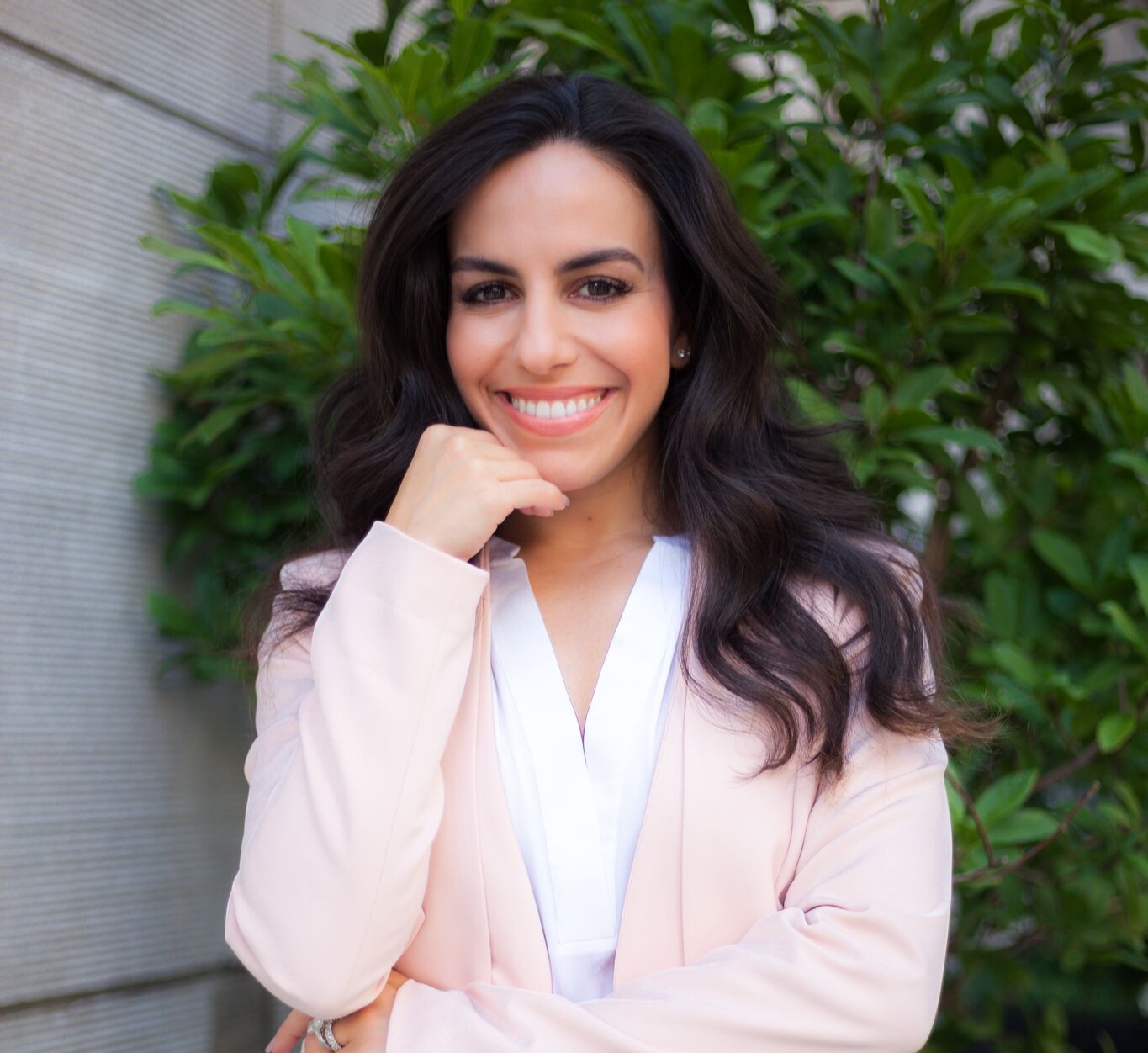Photo of Andrea Syrtash by Alexis Mera.
During National Infertility Week, Alexis Mera and I had the opportunity to meet with six fertility warriors who have been bold enough to share their stories publicly. Please meet Andrea Syrtash a fertility force and trailblazer. Although I have known Andrea for years, our first in person meeting was only very recently when our group of fertility warriors got together for this NAIW project.
Andrea has been a trailblazer in the fertility space and has been actively supporting fertility warriors since she founded pregnantish, the first online lifestyle magazine dedicated to helping singles, couples and LGBT navigate (in)fertility treatments. Andrea’s background as a relationship expert and coach regularly featured on national TV shows including Good Morning America and The Today Show, and as the author of He's Just Not Your Type (And That's A Good Thing) and Cheat On Your Husband (With Your Husband), combined with her compassion for the fertility journey, has made her an unwavering authority in the world of fertility.
I had the privilege to connect with Andrea on some of the aspects of her personal journey that I am so pleased to share in our recent interview here:
Andrea, what is your story?
How much time do you have?! Approximately 18 fertility treatments, one open-stomach surgery to remove a large fibroid, eight years of trying to get and stay pregnant, and eight reproductive doctors. I always knew it might take a while to get pregnant because I was diagnosed with endometriosis as a teenager, but I never imagined that it would take as long as it did to meet our baby (in December 2018)!
After IVF transfer after transfer, and after learning we miscarried a 'heatlhy' baby in 2013 after a D&C, a doctor told me not to do anymore embryo transfers until we genetically tested our embryos. In 2016, I did many more retrievals to try to create enough Day 5 embryos to send away for PGS (now called PGT-A) genetic testing. Once we had healthy embryos, we knew we should try to find a gestational carrier (a surrogate who would use my embryo) to carry our baby to term.
This was another big chapter! Two surrogates dropped out on us and I had no idea how we were going to afford to keep going through this. In January 2018, my first cousin Elana stepped up and offered to carry our embryo. I was so emotional I couldn't respond! We transferred one into her in April 2018, during National Infertility Awareness Week. I remember telling my audience at pregnantish that I had no idea if I'd meet our baby this way, but I was hopeful. In December of 2018 of my cousin delivered our baby girl Arielle (into the world). I'm so grateful and in shock that I'm her mom!
Your High?
I created and launched pregnantish.com to help others navigate this incredibly stressful process right in the middle of my own treatment/IVF. At the time, I was not sure if or how I'd have a baby. Finding a deeper purpose during an experience I was really struggling with was a high for me.I was not only able to use my voice to help others, but I learned so much from others in the community. So often when you're dealing with infertility, you feel alone.
Your Low?
I had many lows over almost a decade of trying to make a baby! One happened in public at a department store after an appointment where the doctor told me my embryos were growing unevenly. (I later learned it's because I needed estrogen priming, but that's another story!) A tourist came up to me and asked if she could pray for me. I felt awkward about it, right there in the middle of the shoe racks; we held hands and she prayed while I cried. Another low was learning that I would miscarry again in 2014. By this point, I had been trying for about 4 years and I was so depleted. December 2015 was another low because my doctor told me that I had a 'beautiful perfect looking embryo', that didn’t take. I had done everything (diet, vitamins, taking care of myself) to let it implant. When it didn't work, I felt hopeless. I called the doctor and he told me to stop treatment and suggested more testing.
What was a low then turned out to be a high because more possibilities opened for us once we got more information (as a result of the testing).
Do you have a silver lining?
I got 2 babies out of this! One is my baby Arielle, who I'm so grateful for and who is a joy. The other is pregnantish which is fulfilling because I often hear it helps others who are struggling.
Do you have any words of wisdom?
I used to tell myself and often tell our readers that so much is out of our control when it comes to goals like parenthood, and if you want to be a parent, there will be a path. You don't need to know the how, the when, the where, you just need to know the what which is that you will be a parent. There are so many paths...
Learn more about Andrea, her story and the wealth of fertility resources available through her site pregnatish.





